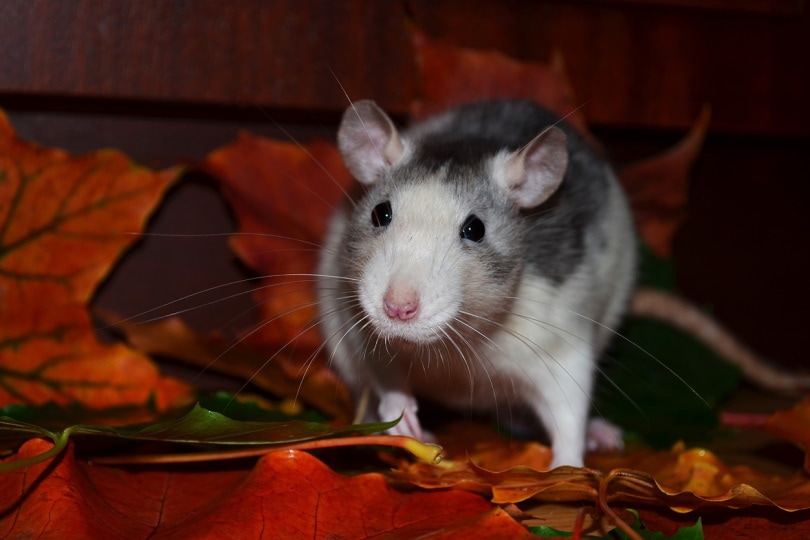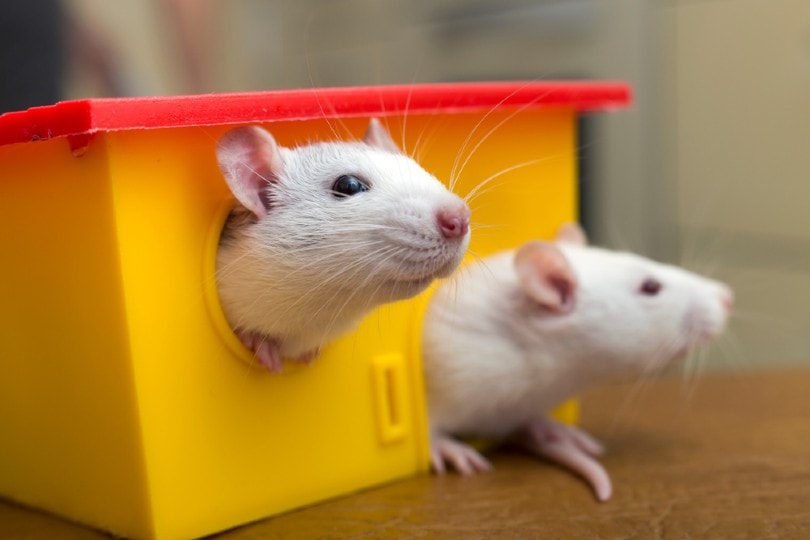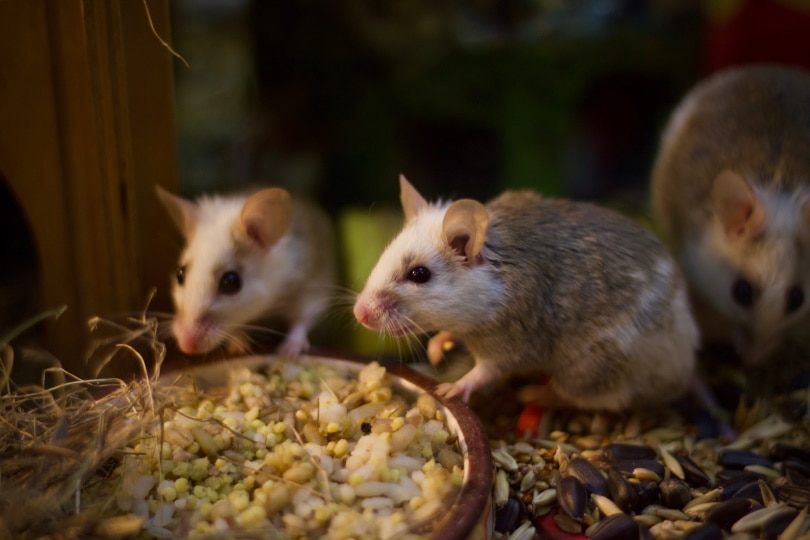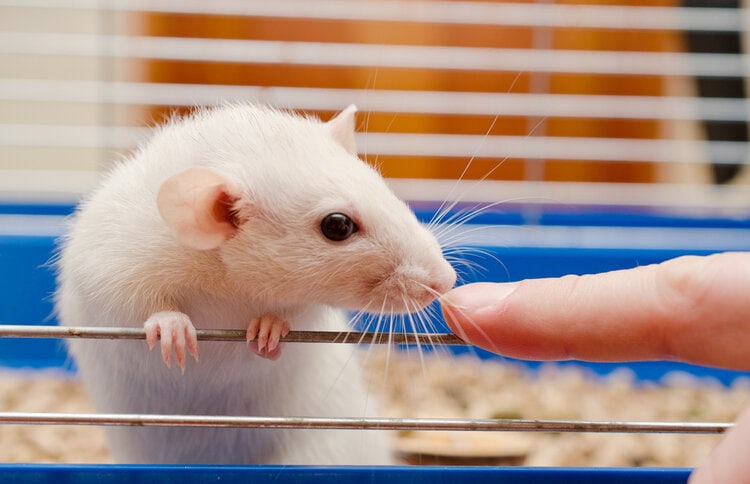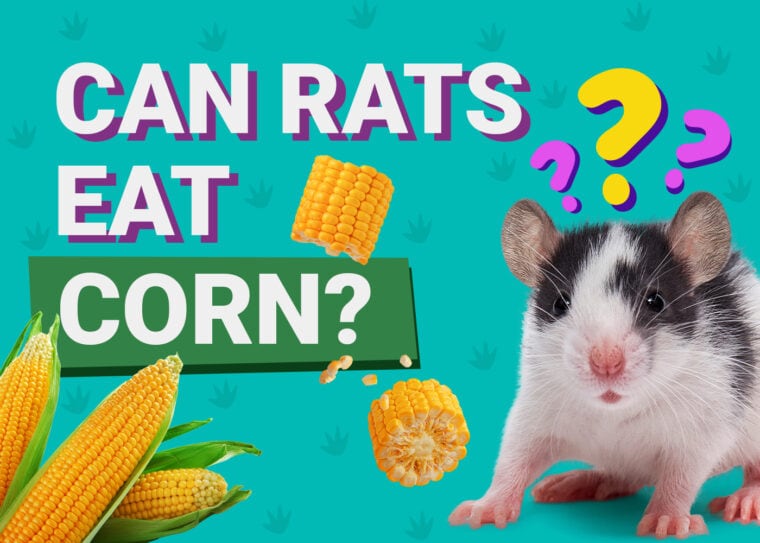
Rats absolutely love corn! But there’s a great deal of confusing information online regarding the safety of corn for rats. We all want our rats to be happy, but we also want them to be safe.
So, is corn safe for rats? Yes, most corn is a great treat for rats, but you should avoid dried corn. We look at the benefits and drawbacks of corn and go into the reasons that you need to be careful providing corn to your rat. We’ll also look at the best ways of feeding corn to your pet and what other vegetables are good for your rat.
All About Corn
Corn is a popular vegetables and for good reason—it’s delicious! It’s also known as maize and was originally used by indigenous people about 10,000 years ago in southern Mexico. It’s considered a member of the grass family and is grown all around the world.
Corn is one of the most popular grains used for cereal but is eaten in a wide variety of products: cornbread, polenta, tortilla chips, corn oil, and popcorn!
So, we all know how delicious corn is in its many incarnations, but how healthy is it?

It also contains vitamins, minerals, and antioxidants such as:
Corn is known to help with eye health and can help with the prevention of diverticulosis.
However, is there a bad side to corn?
Problems With Corn
Corn is susceptible to mycotoxins, which is a fungus that can cause significant health problems. Anyone who eats many corn products and is unknowingly eating corn contaminated with mycotoxins is at risk for cancer and death.
Corn also contains phytic acid, which can impair the absorption of minerals such as zinc and iron. If corn is a staple part of the diet, this can be a major health concern.
Lastly, there’s corn intolerance, which can affect anyone with IBS or issues with FODMAP.
But what about rats? Let’s look at a rat’s typical diet.
A Rat’s Diet
Rats are omnivores, so they need a regular diet of meat, along with fruits and vegetables. Part of their diet can be pellets or lab blocks made for rats, which should have a minimum of 16% protein and 4–5% fat.
You can feed your rat 1/2 or 1 teaspoon of protein about two to three times a week.
Fruit should be fed about two to three times a week and only about 1 teaspoon at a time.
One to two teaspoons of vegetables can be fed every day.
Corn is not included on these lists, and that’s primarily because it should only be considered an occasional treat rather than a staple part of the rat’s diet.
Rats and Corn
Corn that is raw (sweetcorn is best in raw form), frozen, or canned (as long as it doesn’t contain salt or additives) are all generally safe and can support the kidney health of your rat. You can also give your rat popcorn that has been air-popped and has had nothing added to it (no salt or butter). Popcorn is a fun and safe treat that your rat will love!
You can give your pet a few single kernels of corn or add them to a mix of other veggies. Consider giving your rat corn on the cob, which can be boiled or raw (with no salt or butter). However, cut the cob down to a small piece, or your rat might suffer indigestion.
But how is corn dangerous for your rat?

The Downside of Corn for Rats
While corn is full of healthy ingredients in general, it should be given to your rat only as an occasional treat. It is high in sugar, as well as nitrates and amines, which are also not good for rats and are thought to be carcinogenic.
Then there’s dried corn, which is something that you should never feed your rat.
Dried Corn
One of the negatives of corn is the mycotoxins that occur through fungi. These fungi can commonly contaminate corn, particularly dried corn. The specific fungi are fumonisin and aflatoxin, both of which are carcinogenic for rats.
These fungi can cause kidney, colon, and liver cancer in rats. Not all dried corn contains these fungi, but there’s no way of knowing for certain if any dried corn that you give your rat has it or not, so it’s best to be safe than sorry.
Be sure to look out for dried corn that is sometimes included in low-quality rat food mixes. If you’ve been feeding your rat a mix that does include dried corn, stop feeding it immediately and find a high-quality lab block, so you can be assured that your pet has a safe and balanced diet. You should also avoid any food that lists corn as its first ingredient.
 Conclusion
Conclusion
As long as you limit the amount of corn to just the occasional treat, don’t season it, and avoid dried corn and mixes, your rat can enjoy the deliciousness that is corn. You should speak to your vet if you have questions regarding your rat’s diet or any concerns about their health.
We hope that you’ve come away with more knowledge regarding your rat and corn. We know that corn has its health benefits, but it has its drawbacks as well. Being well-informed on your rat’s diet and their health is essential because you want your rat to be with you for as long as possible.
Related Reads:


